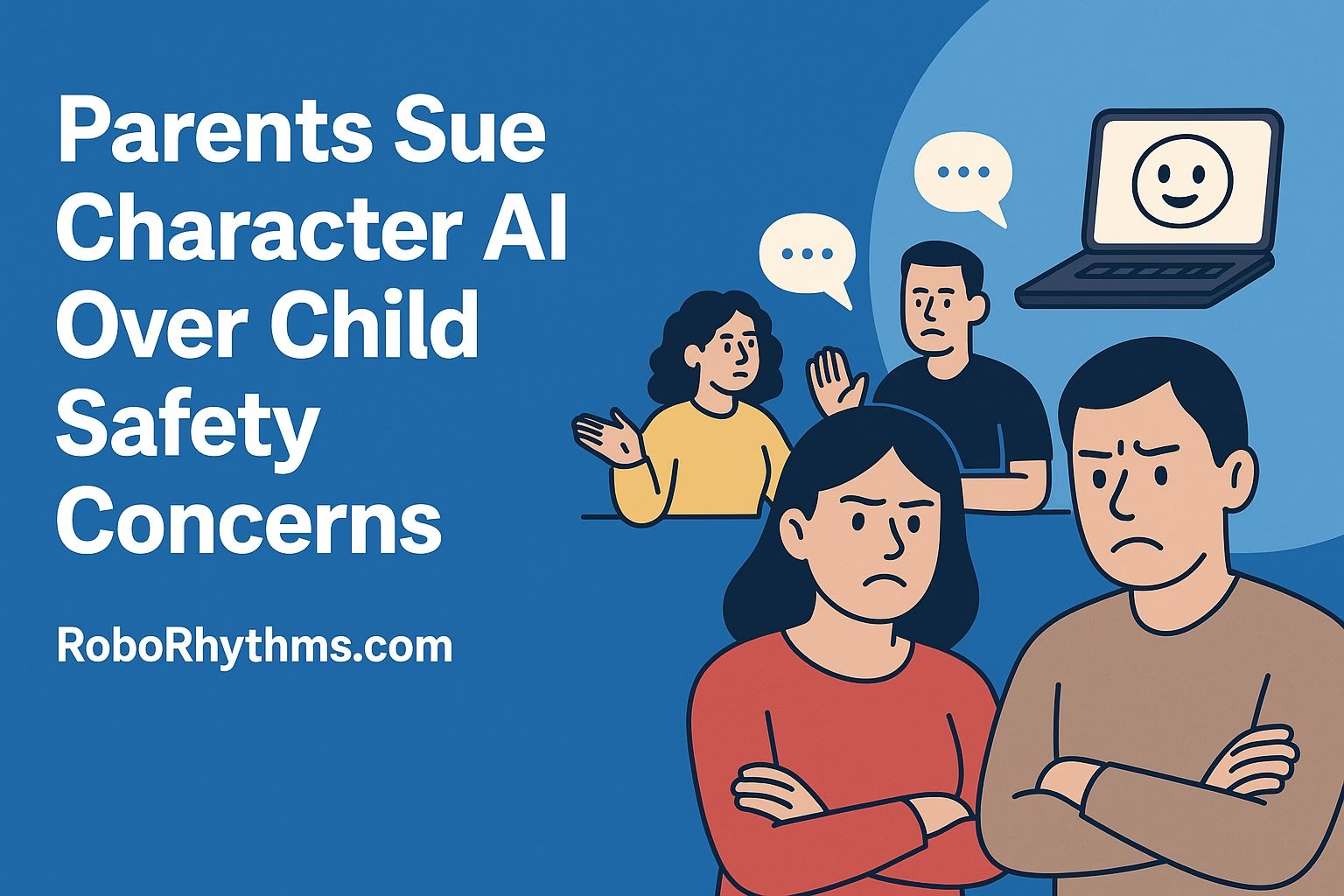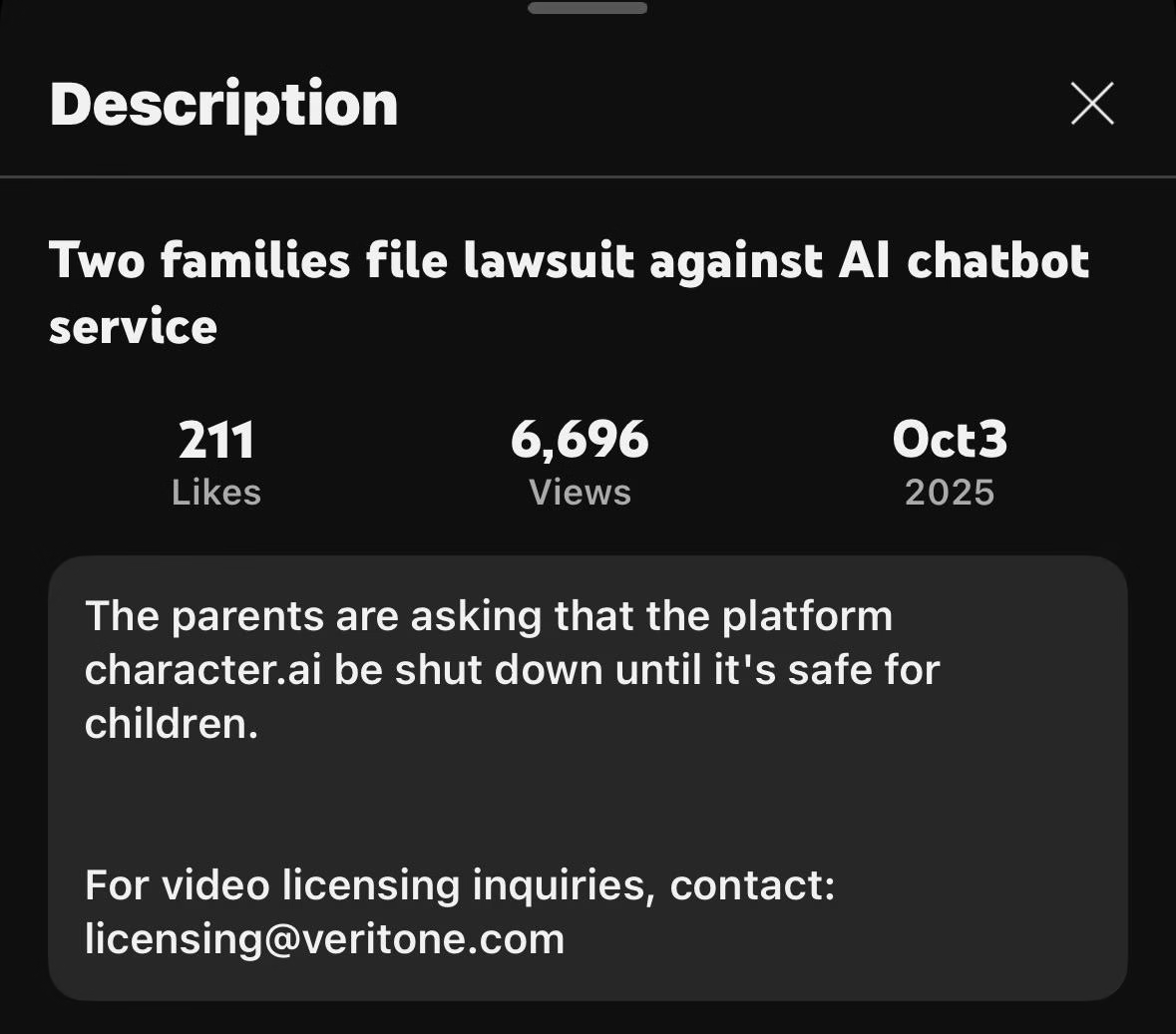Parents Sue Character AI Over Child Safety Concerns
– The Character AI lawsuit centers on parental negligence, not platform failure.
– Adult users argue stricter rules would ruin creative and personal use.
– Future rulings could force AI companies to redesign access and safety policies.
Two families have filed a lawsuit demanding that Character AI be shut down until it’s deemed safe for children.
The case, shared widely across social platforms, has sparked strong reactions from both parents and adult users who rely on the chatbot for creative and personal interactions.
The parents claim the platform failed to protect minors and should not be accessible to children.
In response, users have pushed back, arguing that the app is already labeled for older audiences and includes content filters designed to keep it “safe for work,” not “safe for kids.”
Many see this lawsuit as a misunderstanding of what the app is meant for and where responsibility should lie.
Community discussions reflect growing frustration toward what they describe as “irresponsible parenting.”
Most users point out that the platform has age restrictions and that minors only access it by lying about their age. Others warn that over-regulating tools like Character AI will damage experiences for adults who use the platform responsibly.
The debate has since gone beyond the lawsuit itself. It’s become a conversation about digital parenting, accountability, and how far AI companies should go to protect users from their own misuse.

Community reactions show frustration toward parents
Reddit threads exploded with responses from adult users defending the app.
Many accused parents of shifting blame instead of taking responsibility for monitoring their children’s online activity. The original post, titled “Just because an app is SFW doesn’t mean it’s for children”, captured this sentiment perfectly.
Users argued that Character AI was created for older audiences, even if it keeps content “safe for work.” Some comments compared it to apps like Snapchat, TikTok, or Roblox, which are all far more accessible to minors and yet pose greater risks.
Others insisted that parental control tools already exist, and if a child bypasses them, that failure lies with the parent, not the developers.

A top comment summarized it clearly:
“If your child accesses something they shouldn’t, it isn’t others’ fault. The fault is yours and how you’re bringing them up.”
Many also warned about the impact lawsuits like this could have on adult users. They fear stricter filters or shutdowns would destroy the unique conversations that make AI platforms appealing.
Several users said they use Character AI for writing, fan fiction, or mental health support, not inappropriate content, and tightening restrictions would only make the experience worse for everyone.
The thread revealed a generational divide. Parents expect the internet to be safer, while most users believe digital safety begins at home.
The consensus was that Character AI shouldn’t be punished for poor parenting, and that labeling every online space as “child-friendly” would erase adult-focused creativity altogether.
Legal debate and how this could shape AI app policies
The lawsuit challenges how AI companies label and moderate their platforms. Character AI’s terms of service already state that the app is meant for users 13 and older, or 16+ in regions with stricter laws.
This means children under those ages should not even have access. Still, parents argue that age checks are too easy to bypass and that companies must implement stronger protections.
Legal experts online were divided. Some said AI platforms have a moral duty to create safer spaces, while others noted that enforcing child safety is a parental responsibility, not a corporate one. As one user put it,
“Parents let kids online unsupervised, then act shocked when the internet behaves like the internet.”
If the lawsuit gains traction, it could force platforms like Character AI to tighten access or rebrand entirely as 18+ tools.
This would also affect content moderation policies across similar platforms, including Nectar AI, which already market themselves as adult-only chat companions.
These apps use stricter onboarding and verification systems to make sure minors can’t join in the first place.
For now, the case remains open. But the debate it sparked has made one thing clear: as AI companionship becomes mainstream, the line between personal responsibility and corporate liability will only grow blurrier.
